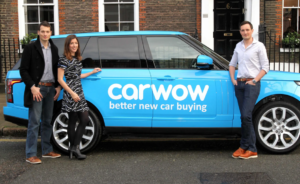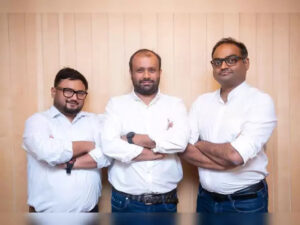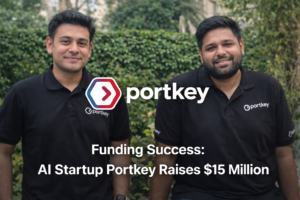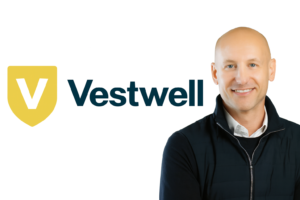First Coffee raises $1.2 Millions in Seed round led by BEENEXT
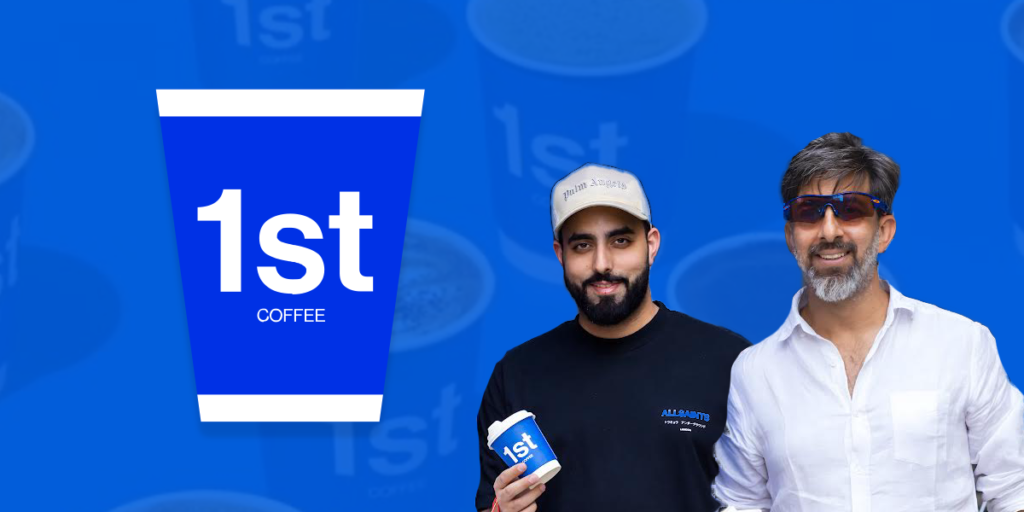
Specialty Coffee Brand First Coffee Raises $1.2 Million in Seed Funding Led by BEENEXT
Introduction
In a significant development for the Indian specialty coffee industry, First Coffee, a premium coffee brand, has successfully raised $1.2 million in its seed funding round. This round was led by the Singapore-based venture capital firm BEENEXT, known for backing early-stage startups in Asia. The funding round also saw the participation of a diverse group of prominent investors from various fields, reflecting the widespread interest in the evolving coffee culture in India.
Diverse Investor Participation
The seed round included contributions from industry veterans and business leaders such as Ashish Gupta, a co-founder of Helion Venture Partners, and AngelList India, a well-known platform for startup investments. Other notable investors include Dr. Ritesh Malik, the founder of Innov8, a leading co-working space provider; Sahil Malik, the founder of luxury leather brand Da Milano; and Chandini Purnesh, the owner of Harley Coffee Estate. This diverse group of investors underlines the growing appeal of the specialty coffee segment in India and the potential they see in First Coffee’s unique value proposition.
Additional investors in this round included Aman Arora and Agastya Dalmia, both from Keventers, a renowned dairy brand, as well as Aman Bahel from Apex Group and Nakul Dev Chawla of Art Mumbai. Dr. Shriram Nene, a healthcare entrepreneur, also joined the round, indicating a broad-based confidence in First Coffee’s business model and growth potential.
Strategic Utilization of Funds
First Coffee plans to leverage the newly acquired funds to accelerate its expansion across key urban markets in India. The company aims to establish a strong presence in high-footfall areas, such as malls, corporate parks, high streets, and metro stations, particularly in New Delhi and the National Capital Region (NCR), as well as tier-I cities in North India.
The initial focus will be on small-format quick-service restaurant (QSR) outlets, which are expected to offer a more accessible entry point for customers looking to experience premium coffee in a convenient setting. By the second quarter of the next fiscal year, First Coffee intends to open 35 stores nationwide, making significant strides in the competitive specialty coffee market.
Emphasis on Sustainable Sourcing and Ethical Practices
Founded by Sohrab Sitaram and Shiv Dhawan in 2024, First Coffee is not just another coffee brand; it represents a blend of design, culture, and innovation. The founders have a vision of integrating experiential big data with advanced analytics powered by artificial intelligence, creating a technology-driven retail model that sets them apart from traditional coffee chains.
Sustainability is at the core of First Coffee’s operations. The brand sources its coffee beans from shade-grown plantations, employing eco-friendly farming methods such as the use of man-made lakes for irrigation and traditional insect traps to reduce the need for chemical pesticides. This commitment to sustainable practices not only ensures the quality of the coffee but also supports the livelihoods of coffee farmers and preserves the environment.
Market Dynamics and Growth Potential
The specialty coffee market in India is witnessing a rapid transformation, driven by changing consumer preferences and a growing demand for premium, ethically sourced coffee. According to a report by Customer Market Insights, the Indian coffee market is expected to reach $1,227.47 million by 2032, growing at a compound annual growth rate (CAGR) of 9.87% from 2024 to 2033. This robust growth forecast highlights the significant opportunities available to players like First Coffee, who are positioned to cater to an increasingly discerning customer base.
The shift towards specialty coffee is being fueled by a younger demographic that values quality, experience, and ethical sourcing. Brands like First Coffee are capitalizing on this trend by offering a product that not only tastes superior but also aligns with the values of sustainability and innovation.
Competitive Landscape
The Indian coffee market has traditionally been dominated by mass-market brands and instant coffee products. However, in recent years, there has been a noticeable shift towards specialty coffee, with a number of homegrown and international brands vying for a share of this lucrative market.
First Coffee faces competition from established players like Blue Tokai, Third Wave Coffee Roasters, and Araku Coffee, all of which have carved out a niche for themselves by offering premium, single-origin coffee. However, First Coffee’s unique value proposition—combining technology, design, and a commitment to sustainability—positions it well to compete in this crowded space.
The company’s focus on small-format QSR outlets is a strategic move that differentiates it from other specialty coffee brands that often rely on larger, more traditional café settings. By targeting high-traffic locations with a convenient, on-the-go coffee experience, First Coffee aims to capture a broader audience, including busy professionals and younger consumers who are looking for quality coffee without the need for a leisurely café experience.
Challenges and Opportunities
Despite the promising growth prospects, there are several challenges that First Coffee must navigate as it scales its operations. The specialty coffee segment, though growing, still represents a small fraction of the overall coffee market in India, which is dominated by instant and mass-market coffee products. Changing consumer habits and educating the market about the value of specialty coffee will be crucial for First Coffee’s success.
Additionally, the company must ensure that its rapid expansion does not compromise the quality of its coffee or the integrity of its sourcing practices. Maintaining consistency across multiple locations, especially as the company expands into new markets, will require robust supply chain management and stringent quality control measures.
On the other hand, the growing awareness of sustainability and ethical consumption among Indian consumers presents a significant opportunity for First Coffee. As more consumers become conscious of the environmental and social impact of their purchasing decisions, brands that prioritize transparency and sustainability, like First Coffee, are likely to gain traction.
Technology-Driven Retail Model
One of the key differentiators for First Coffee is its use of technology to enhance the customer experience. The company integrates big data and AI to analyze consumer behavior, optimize inventory management, and personalize the customer journey. This data-driven approach allows First Coffee to offer a more tailored experience, from personalized drink recommendations to targeted promotions based on individual preferences.
The technology-driven retail model also extends to the operational side of the business. By leveraging AI and machine learning, First Coffee can streamline its supply chain, reducing waste and improving efficiency. This technological integration not only helps the company scale more effectively but also ensures a consistent and high-quality customer experience across all its outlets.
Future Roadmap
Looking ahead, First Coffee has ambitious plans to expand its footprint beyond North India. The company aims to establish a presence in other metropolitan areas such as Mumbai, Bangalore, and Hyderabad, which have vibrant coffee cultures and a growing demand for specialty coffee.
In addition to its physical stores, First Coffee is also exploring opportunities in the digital space. The company plans to launch an e-commerce platform that will allow customers to order their favorite coffee beans and blends online. This direct-to-consumer (D2C) model will enable First Coffee to reach a wider audience and build a loyal customer base beyond its brick-and-mortar locations.
The company is also considering collaborations with other lifestyle brands and exploring new product lines, such as ready-to-drink coffee beverages and coffee-based snacks, to diversify its offerings and create additional revenue streams.
Conclusion
First Coffee’s successful seed funding round marks a significant milestone in its journey to become a leading player in the Indian specialty coffee market. With a strong backing from a diverse group of investors, a clear focus on sustainability, and a technology-driven business model, the company is well-positioned to capitalize on the growing demand for premium coffee in India.
In a market that is rapidly evolving, First Coffee’s unique blend of design, technology, and ethical sourcing positions it as a brand to watch in the coming years. As consumers continue to seek out more authentic and meaningful experiences, First Coffee’s commitment to delivering a premium coffee experience with a conscience is likely to resonate with a growing audience.
FAQs about First Coffee’s Recent Seed Funding and Future Plans
- What is First Coffee, and what makes it different from other coffee brands?
First Coffee is a specialty coffee brand founded in 2024 by Sohrab Sitaram and Shiv Dhawan. The brand distinguishes itself by combining premium coffee with a unique customer experience, driven by design, culture, and technology. It emphasizes sustainable sourcing practices, such as using shade-grown coffee and eco-friendly farming methods, to offer high-quality, ethically sourced coffee.
- Who led the recent seed funding round for First Coffee?
The $1.2 million seed funding round for First Coffee was led by BEENEXT, a Singapore-based venture capital firm known for supporting early-stage startups in Asia. This round also saw participation from several notable investors across various industries.
- Who are the other investors involved in this funding round?
Apart from BEENEXT, the funding round included investors such as:
– Ashish Gupta (Helion Venture Partners)
– AngelList India
– Dr. Ritesh Malik (Founder, Innov8)
– Sahil Malik (Founder, Da Milano)
– Chandini Purnesh (Owner, Harley Coffee Estate)
– Aman Arora and Agastya Dalmia (Board Members, Keventers)
– Aman Bahel (Apex Group)
– Nakul Dev Chawla (Art Mumbai)
– Dr. Shriram Nene
These investors bring a wealth of experience and a strong network to support First Coffee’s growth.
- How will First Coffee use the $1.2 million raised in the seed funding round?
The funds will be primarily used for expanding First Coffee’s store presence across key urban areas in New Delhi, NCR, and tier-I cities in North India. The company aims to open 35 stores by the second quarter of the next fiscal year, focusing on small-format QSR outlets in high-footfall areas. Additionally, the funds will support hiring efforts and enhance marketing initiatives to increase brand visibility and customer engagement.
- What are small-format QSR outlets, and why is First Coffee focusing on them?
Small-format QSR (Quick Service Restaurant) outlets are compact coffee shops designed for quick service, typically located in high-traffic areas such as malls, corporate parks, high streets, and metro stations. First Coffee is focusing on these outlets to offer a convenient, high-quality coffee experience to busy professionals and young consumers who prefer premium coffee on the go.
- How does First Coffee ensure the sustainability of its coffee sourcing?
First Coffee is committed to sustainable and ethical coffee sourcing. It uses shade-grown coffee, which is cultivated under a canopy of trees that provide natural habitat and maintain biodiversity. The company employs eco-friendly methods such as man-made lakes for irrigation and traditional insect traps to minimize the use of chemical pesticides. This approach supports the environment, the farmers, and ensures the quality of the coffee.
- What role does technology play in First Coffee’s business model?
First Coffee integrates experiential big data and AI to analyze customer preferences, optimize inventory, and personalize the customer experience. This technology-driven retail model allows the company to offer targeted promotions and personalized recommendations, enhancing the overall customer journey. Technology is also used to streamline operations and maintain consistency across all outlets.
- What are the future expansion plans for First Coffee?
In the immediate future, First Coffee plans to establish 35 small-format QSR outlets across New Delhi, NCR, and other tier-I cities in North India. In the long term, the company aims to expand its footprint to other metropolitan areas like Mumbai, Bangalore, and Hyderabad. Additionally, First Coffee is exploring opportunities in the digital space with plans to launch an e-commerce platform for selling coffee beans and related products directly to consumers.
- How does First Coffee plan to compete with established players in the Indian specialty coffee market?
First Coffee differentiates itself through its unique value proposition, combining premium, sustainably sourced coffee with a technology-driven customer experience. Its focus on small-format QSR outlets in high-footfall areas provides a convenient option for busy consumers. By leveraging big data and AI to personalize customer interactions and maintaining a strong commitment to sustainability, First Coffee aims to carve out a distinct niche in the competitive specialty coffee market.
- What does the growth potential look like for the specialty coffee market in India?
The specialty coffee market in India is poised for significant growth. According to Customer Market Insights, the Indian coffee market is projected to reach $1,227.47 million by 2032, growing at a 9.87% CAGR from 2024 to 2033. This growth is driven by a shift in consumer preferences towards premium, ethically sourced coffee, and an increasing demand for unique coffee experiences. Brands like First Coffee are well-positioned to capitalize on these trends.
- What challenges does First Coffee anticipate as it scales its operations?
Scaling operations while maintaining the quality of coffee and the integrity of its sourcing practices is a significant challenge for First Coffee. Ensuring consistency across multiple outlets and educating consumers about the value of specialty coffee in a market dominated by mass-market products are also potential hurdles. However, with a strong focus on technology, sustainability, and a clear expansion strategy, First Coffee is well-prepared to navigate these challenges.
- How can interested customers and potential partners get in touch with First Coffee?
Interested customers and potential partners can get in touch with First Coffee through their official website or social media channels. They can also visit any of the First Coffee outlets to experience their premium coffee offerings and learn more about their brand values and business model. For business inquiries or partnership opportunities, contacting First Coffee directly via email or phone is recommended.
Also read our latest blog: Agilitas Sports raises strategic money from Spring Marketing Capital
